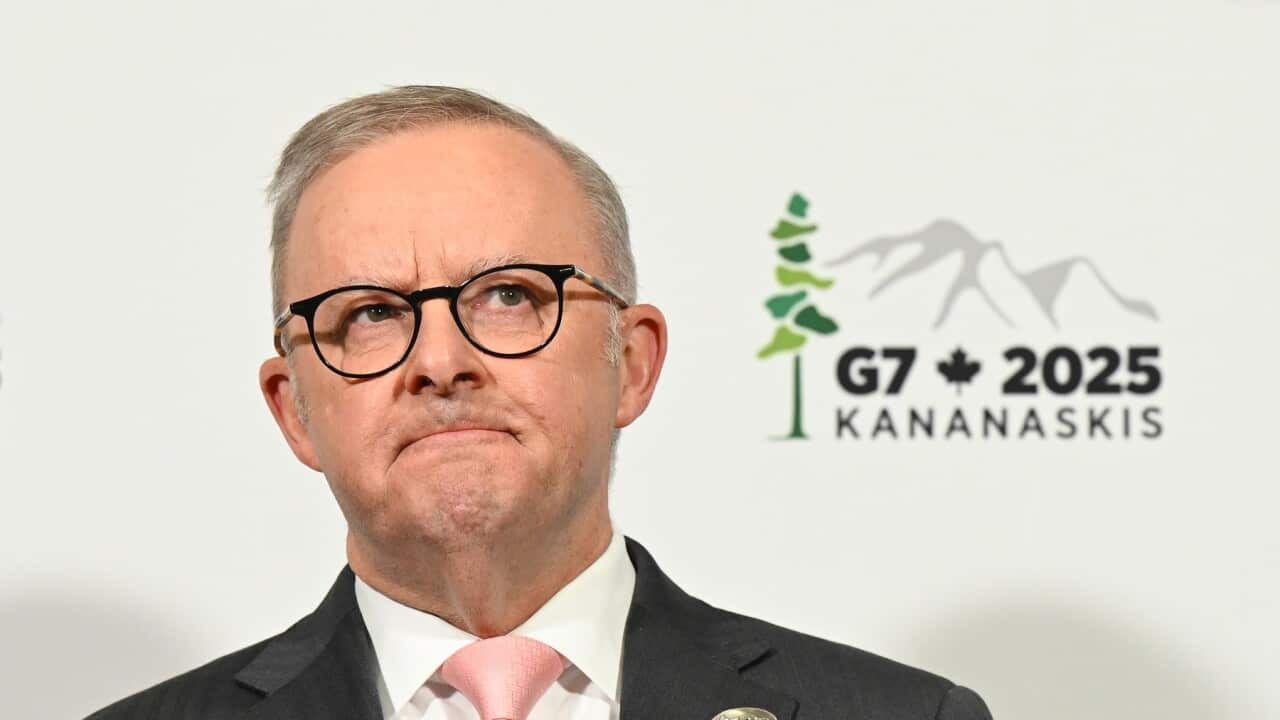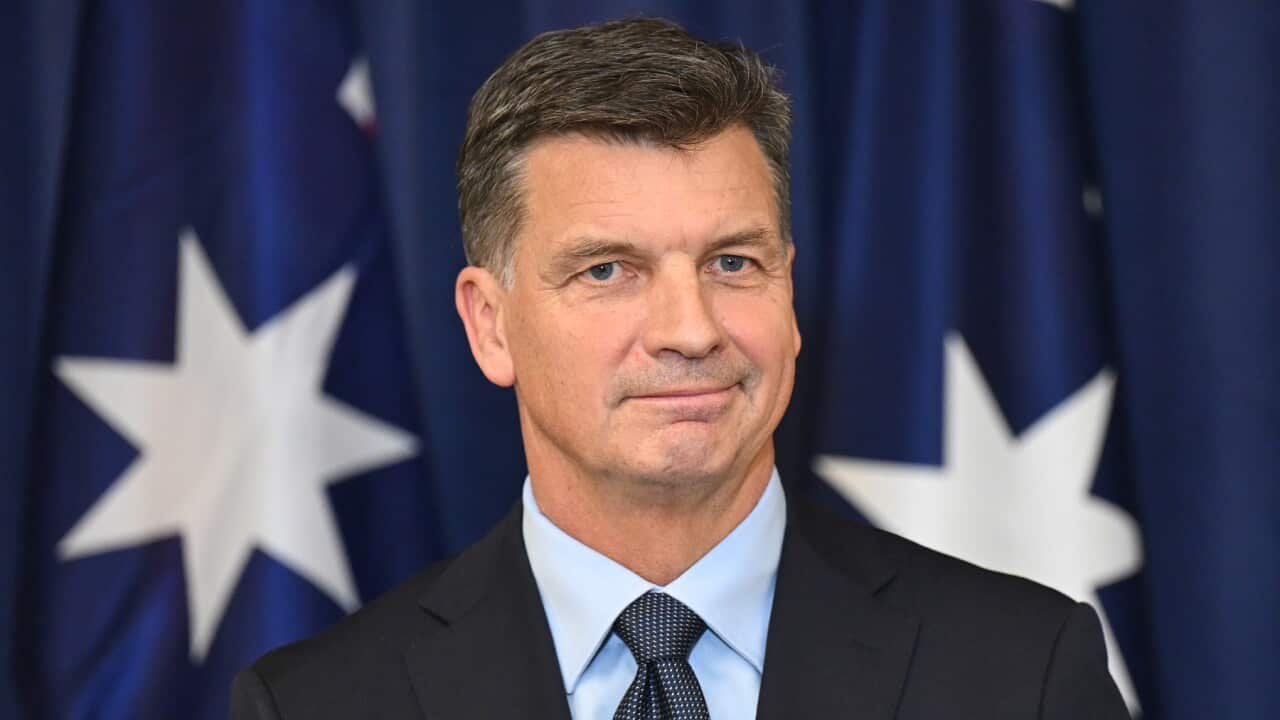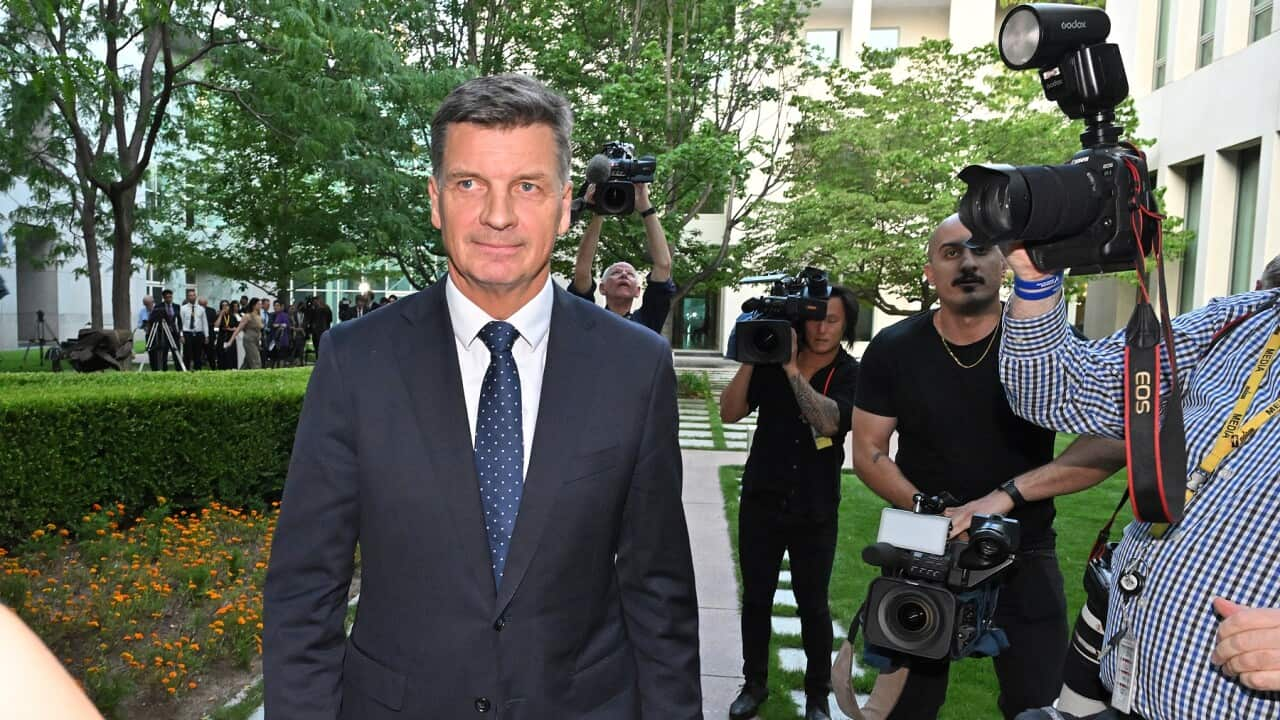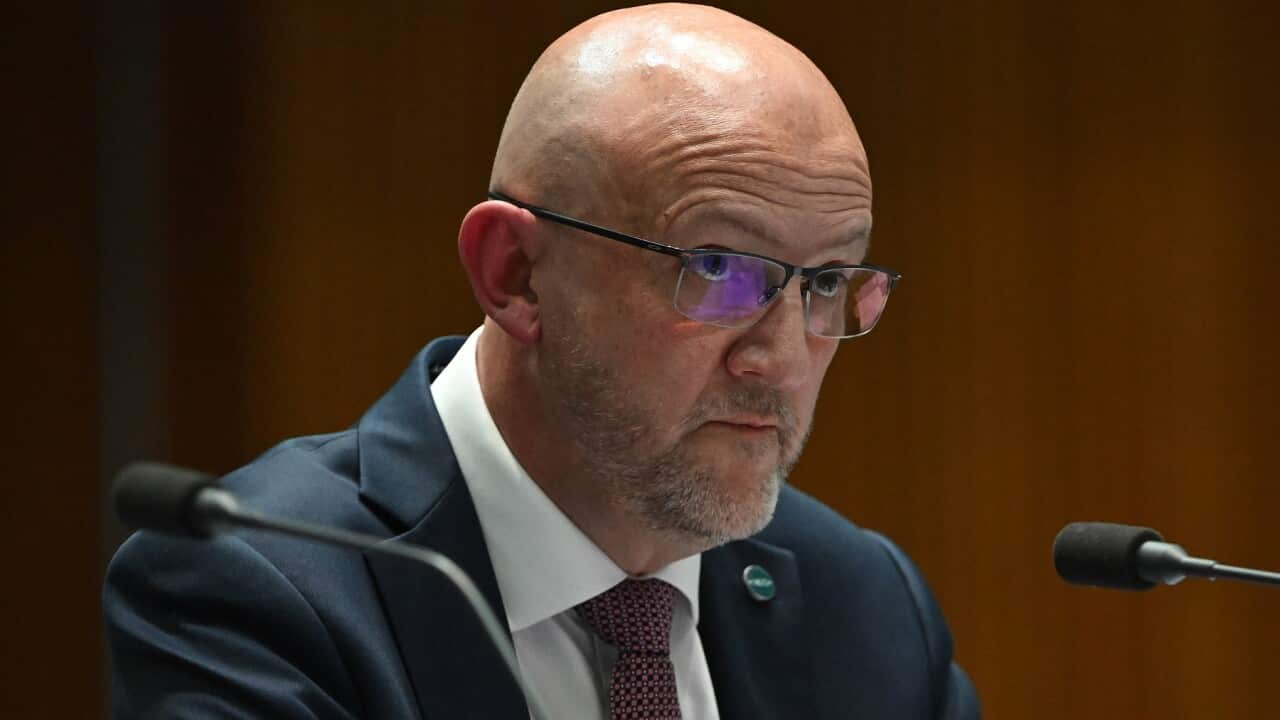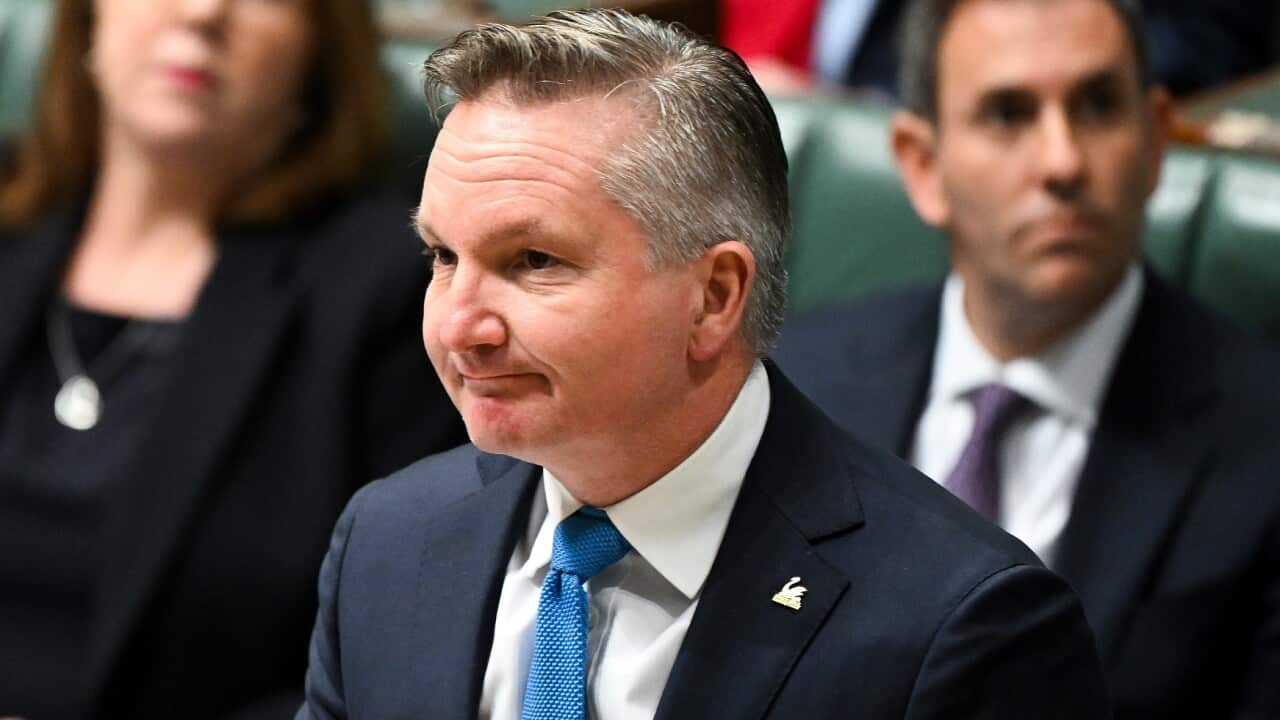Listen to Australian and world news, and follow trending topics with SBS News Podcasts.
TRANSCRIPT:
It was a meeting that both sides of Australian politics were looking forward to, but as Donald Trump cut short his trip to the G7 Summit in Canada, the meeting between the US and Australian leaders had to be cancelled.
Mr Trump's departure came just minutes after Prime Minister Anthony Albanese told media he was looking forward to meeting Mr Trump in person.
"We will continue to put forward our case as we have in all of the discussions that I had with President Trump, and it shouldn't be regarded either that it's just a leader-to-leader, there have been extensive discussions between Australian officials and the United States officials going forward."
White House Press Karoline Leavitt says Mr Trump had to return to Washington in relation to matters in the Middle East, but didn't clarify if that meant the Israel-Iran conflict.
French president Emmanuel Macron later claimed Mr Trump had made a ceasefire offer to Israel and Iran, but that was soon disputed by Mr Trump himself on social media.
In his post, Mr Trump said he had to return to Washington for matters he said were "much bigger than that", and described Mr Macron as publicity-seeking.
As the war between Israel and Iran continues to escalate, the G7 leaders put the issue high on agenda.
United Kingdom Prime Minister Keir Starmer says there's a consensus among the leaders on de-escalation.
"There are shared concerns about the risk of escalation, obviously shared concerns about the nuclear program of Iran but absolutely a focus on how we de-escalate this, and that will be a central focus as we go into the talks today.”
Whatever the reason behind Mr Trump's early departure, Opposition Leader Sussan Ley says the Albanese government should have tried harder to secure the meeting outside the international conference.
"There are important issues that we need as a country in our national interest to seek reassurance from the US about. Of course AUKUS, and protection from tariffs. The Coalition stands ready to support Prime Minister Albanese and any efforts that he seeks to make, in order that we can advance Australia's national interest on these important issues."
But Australia has received some reassurance from another AUKUS ally over after Mr Trump announced a review of the multi-billion nuclear submarine project.
Keir Starmer has said the UK and the US will proceed with the AUKUS nuclear submarine, despite the review, which was welcomed by Mr Albanese.
"That was very positive, and I have seen the comments that were made, and of course it is in Australia's, the United States', and the United Kingdom's interest that AUKUS not just proceed in terms of Pillar 1, but Pillar 2 as well. There are great advantages that we have that the sum of one plus one plus one sometimes equals more than three."
And there were other meetings that did go ahead - Mr Albanese met South Korea's newly elected president Lee Jae-myung, with the two discussing economic and green energy collaboration.
Mr Albanese also told Mr Lee he looked forward to joining the APEC meeting, to be hosted by South Korea in the coming months.
And the Prime Minister met NATO Secretary General Mark Rutte to discuss support for Ukraine and other defence challenges.
